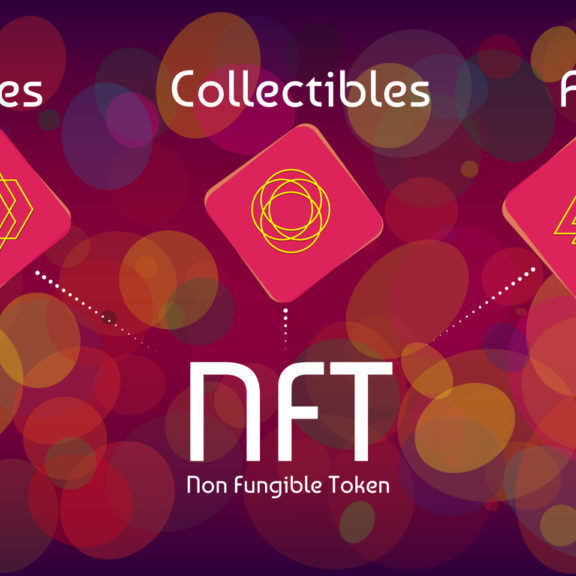Insights < BACK TO ALL INSIGHTS
NBA Gets Comfortable With NFTs
NBA Gets Comfortable With NFTs
By: Ifrah Law
When people think about LeBron James or Giannis Antetokounmpo, blockchain and digital tokens are probably not the first, tenth, or hundredth thing that comes to mind. But with the rise of NBA Top Shot—a non-fungible token (NFT) that exists on the blockchain, consisting of player video highlights officially licensed from the NBA—that may be changing.
What is an NFT?
The creator of Top Shot, Dapper Labs, entered into a licensing agreement with the NBA in 2019 to begin selling Top Shot “Moments” via blockchain technology, with a beta version launched in May 2020. In the simplest terms, Top Shot Moments are essentially the digital equivalent of trading cards. The trading card analogy is one of the reasons that it may be unsurprising to some that Top Shot’s popularity has skyrocketed in 2021, as the trading card market has likewise experienced a renaissance over the course of the last year. Top Shot’s userbase has exploded this year, from having only tens of thousands of users early in 2021 to almost 500,000 users by the beginning of March.
Each individual Top Shot Moment is an NFT. NFTs differ from other blockchain technologies such as cryptocurrencies because, unlike something like Bitcoin, NFTs themselves are considered to have their own inherent value because they are collectible in nature. Other NFTs include items that can be used in video games and various kinds of digital artwork. The “token” component of each Top Shot Moment is essentially where the digital “title” to each Moment is recorded and maintained in the blockchain.
As in the case of other NFTs and trading cards, Top Shot users like to collect individual players’ Moments, and Moments for Lebron, Giannis, other all-stars, and rookies tend to be the most sought-after. And while some Moments exist in large quantities—with up to 35,000 of some “Common” Moments having been minted—Top Shot has also minted “Rare” Moments that number only in the hundreds or low thousands and “Legendary” Moments that number less than 100, both of which have generated significant collector enthusiasm.
Dapper Labs sells Top Shot Moments in “Packs”—purchasable with cash or cryptocurrency—which now sell out almost immediately, with users digitally “queuing” up in wait rooms to have the opportunity to make a purchase. But for users who cannot buy Packs or wish to own more Moments, Dapper has also established the Top Shot “Marketplace” where users can buy or sell individual moments (also for cash or cryptocurrency). The lowest asking price on the Marketplace for a “Legendary” Ja Morant Moment from his rookie season—one of only 25 minted—is currently $240,000. “Legendary” Moments for Lebron, Zion Williamson, and Luka Doncic are priced at similarly astounding levels.
Legal considerations for NFTs
So, why are we even talking about Top Shot and NFTs? For one, there is an argument that Top Shot Moments could be interpreted to constitute gambling. Although it is easy to understand how one may claim that buying a Pack of Moments could contain the typical elements found in the legal analysis of gambling—prize, chance, and, consideration—at bottom, Top Shot can also be interpreted to be essentially the digital age version of trading cards, which were previously subjected to gambling allegations. Indeed, in the late 1990’s and early 2000’s, a number of private lawsuits accused trading card manufacturers including Topps and Upper Deck of violating the federal Racketeer Influenced and Corrupt Organizations (“RICO”) Act on a theory that selling packs of baseball cards could constitute gambling, based on the fact that certain packs contained rare valuable cards, but others did not.
Although the courts considering the trading card cases left open the possibility that criminal gambling statutes could be implicated, the RICO lawsuits were ultimately unsuccessful because courts found that the plaintiffs’ bargain with the card companies was to receive a pack of cards that may or may not receive a rare card, and because they did receive cards in the pack, they received exactly that for which they bargained. Similar conversations regarding trading cards and gambling have resurfaced recently with the rise of “card breaking” (also known as “case breaking” and “box breaking”), which are events in which consumers purchase a “spot” that entitles them to be provided sports cards that are opened from a box of cards, often via live streaming video over the internet. Although there are arguments on both sides of the debate as to whether trading cards could somehow constitute gambling, it has yet to be tested in court. Should the issue arise one day, we will see how it plays out, and Top Shot could be a part of the conversation.
NFT issuers such as Dapper Labs would almost assuredly explain that their products do not constitute gambling—or, for that matter, unregistered securities—based upon the collectible aspect of NFTs. And they have an excellent point: with the resurgence of traditional trading card collecting (and, for that matter, card breaking) and many buyers and sellers on eBay assuredly viewing trading card sales as having elements of entertainment, collecting, and, yes, investment, why should Top Shot or other NFTs draw regulatory ire? But the fact remains that for every Michael Jordan rookie card that may have turned out to be an excellent purchase, there are thousands of Beanie Babies collecting dust in garages across the world. And with that history of “collectible bubbles” in mind, although there is reason to believe that the NBA and Dapper Labs exercised great care in bringing Top Shot to market, there are arguments on both sides of the debate when it comes to Top Shot. As Top Shot’s “Moment” of growth continues, we will see if and how the legal landscape reacts.





